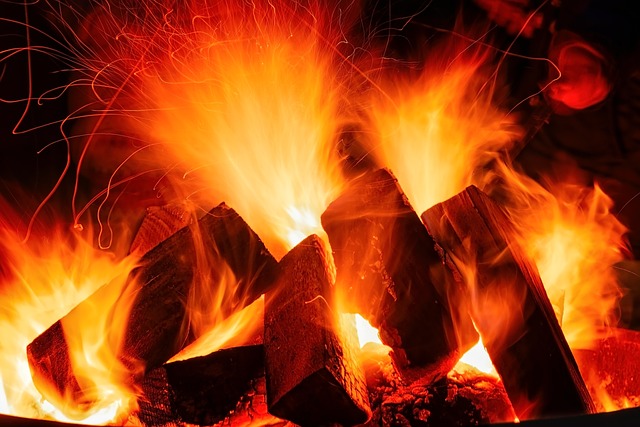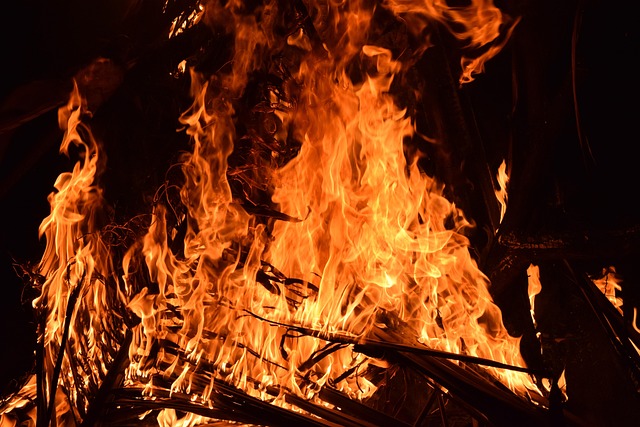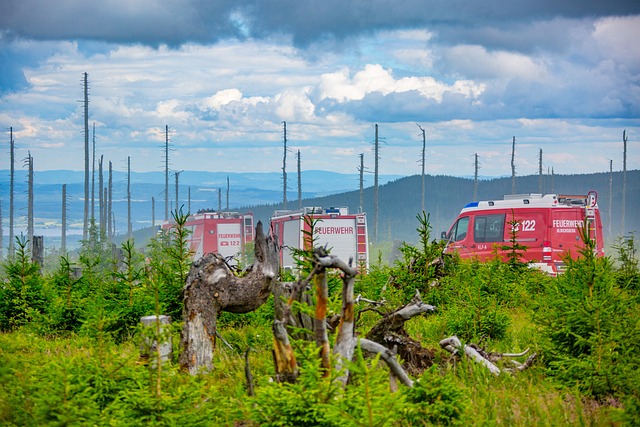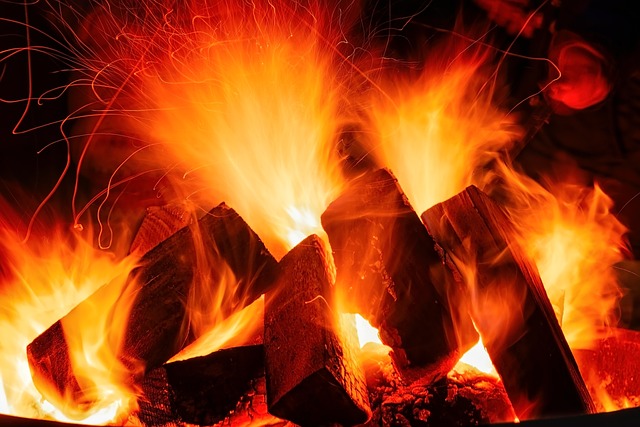Houston Homeowners Guide: Water Damage Repair & Fire-Damaged Property Sale
Houston homeowners face water damage risks from severe weather and common issues like burst pipes or…….
In the bustling metropolis of Houston, Texas, homeowners often find themselves navigating complex paths when disaster strikes, such as a fire. The aftermath of a fire can leave homes in varying degrees of damage, leaving owners with difficult decisions. One prominent solution gaining traction is the concept of selling a fire-damaged property. This article delves into the intricacies of this process, providing an insightful guide for homeowners considering their options in Houston. By exploring various facets, from understanding the concept to future prospects, readers will gain a comprehensive view of navigating the sale of a fire-affected home in this vibrant city.
“Sell my fire damaged home Houston” is a service or strategy employed by homeowners who have experienced a fire in their residence and wish to sell it as is, given its damaged state. This approach involves several key components:
Assessment: The initial step includes a thorough inspection of the property by professionals to evaluate the extent of fire damage. This assessment determines the home’s salvageable value and identifies necessary repairs or demolition.
Market Analysis: Understanding the local real estate market is crucial. Professionals analyze comparable sales, current demand, and trends to set a realistic price for the fire-damaged property.
Marketing and Exposure: Effective marketing strategies are employed to showcase the property to potential buyers who may be interested in purchasing as-is or rehabilitating it. This includes online listings, targeted advertising, and network engagement.
Negotiation and Sale: Interested buyers negotiate the purchase price with the seller. In some cases, investors buy these properties for renovation and resale, while others may seek to rebuild on the site.
The concept of selling fire-damaged homes has evolved over time, particularly in areas prone to natural disasters. Houston, being a city that experiences occasional severe weather events, including fires, has adapted its real estate practices accordingly. Historically, homeowners faced challenges in finding buyers for their damaged properties, often leading to prolonged vacancies or costly demolitions. The rise of specialized services addressing this unique market need reflects the city’s resilience and adaptability.
The practice of selling fire-damaged homes has transcended geographical boundaries, with Houston following global trends in real estate recovery. Several international cities, such as Los Angeles, New York, and London, have established robust markets for these properties, influencing local strategies.
Different regions within the United States exhibit varying approaches to this phenomenon:
Northeastern Cities: Known for their stringent building codes and stringent insurance requirements, cities like New York and Boston have well-established processes for handling fire-damaged properties, often involving specialized insurance adjusters and restoration companies.
Western Metropolises: Seattle and San Francisco have seen a rise in micro-apartments and urban renovation projects, attracting buyers who embrace the challenge of purchasing damaged homes for rehabilitation.
Southern Cities: Houston, Atlanta, and Miami share similarities in their approach, combining market flexibility with a strong sense of community resilience, often encouraging local investment in affected areas.
The Houston real estate market’s responsiveness to fire-damaged properties is influenced by several economic factors:
Supply and Demand: The availability of such properties can fluctuate based on fire incidents. In areas with higher fire activity, the supply may outpace demand, potentially leading to lower prices.
Investment Opportunities: Real estate investors often view these properties as potential gems, especially in neighborhoods where rehabilitation projects can yield significant returns.
Local Economy: The strength of Houston’s economy and its real estate sector plays a pivotal role in determining the overall market health for fire-damaged homes.
Houston’s investment landscape offers unique opportunities for purchasing fire-damaged properties:
| Investment Strategy | Description |
|---|---|
| Flipping: Investors buy, renovate, and resell for a profit. | This strategy is popular for smaller, manageable repairs and can yield quick returns. |
| Long-term Holding: Acquiring properties to hold for the long term, anticipating capital appreciation. | Suitable for larger-scale renovations or areas with potential for significant value growth. |
| Rental Income: Purchasing damaged homes to rent them out after renovation. | A passive investment option, offering regular income but requiring extensive management. |
The sale of fire-damaged properties contributes to the city’s economic landscape by:
Stimulating Local Businesses: Restoration, renovation, and construction companies benefit from increased work, fostering economic growth.
Community Revitalization: Areas affected by fires can experience renewed interest and investment, leading to improved local infrastructure and amenities.
Tax Revenue: Property sales generate revenue for the city, supporting public services and community development initiatives.
Technology plays a significant role in modernizing the process:
Online Marketplaces: Dedicated websites and apps connect homeowners with buyers, providing a digital platform for listings, inquiries, and transactions.
Drone Technology: Aerial drones capture high-resolution images and videos of properties, offering a cost-effective way to assess damage and market properties visually.
Virtual Reality (VR): VR technology allows potential buyers to virtually tour damaged homes, providing an immersive experience despite the property’s current state.
Advanced data analytics assists in predicting market trends and identifying areas with high fire risk:
Risk Assessment: Analyzing historical fire data helps identify patterns and predict future risks, aiding insurers and investors in decision-making.
Market Insights: Predictive analytics provides valuable insights into property values, helping homeowners and real estate professionals set realistic expectations.
Selling a fire-damaged home involves legal considerations:
Contractual Agreements: Clear contracts outline the terms of sale, including repairs, warranties, and buyer protections.
Disclaimers: Homeowners must disclose known damage and defects to buyers, ensuring transparency and avoiding future disputes.
Local Regulations: Adhering to local zoning laws and building codes is essential to avoid legal issues and ensure the property’s resaleability in the future.
Insurance plays a dual role in this process:
Damage Assessment: Insurance adjusters evaluate losses, determining coverage amounts and settlement terms, which impact the sale.
Policy Options: Homeowners may consider specific policies for fire damage, offering reduced rates or incentives for repairing and rehabilitating properties.
Marketing a fire-damaged property requires a tailored approach:
Transparency: Highlighting the home’s potential while being transparent about damage can attract buyers who embrace renovation projects.
Storytelling: Sharing the history of the property, including its resilience, can evoke an emotional response from potential buyers.
Targeted Advertising: Utilizing social media and local publications to reach specific demographics, such as investors or first-time homebuyers.
Connecting with buyers who appreciate the unique aspects of fire-damaged homes is key:
Open Houses: Hosting open houses allows interested parties to visually inspect the property, addressing concerns and fostering engagement.
Personal Testimonials: Sharing success stories of previous buyers who renovated and profited from similar properties can be powerful marketing tools.
Virtual Tours: Offering VR tours provides a safe, remote way for buyers to experience the home, increasing accessibility and interest.
After the sale, various renovation scenarios unfold:
Demolition: In severe cases, homeowners may choose to demolish the property and start anew, especially if rebuilding is more cost-effective.
Partial Renovations: Selective repairs and upgrades cater to buyers who wish to live in the home as is or plan a gradual renovation.
Comprehensive Rehabilitation: Extensive renovations transform the damaged property into a modern, move-in-ready residence, appealing to buyer preferences for new construction.
Houston offers resources to support homeowners through the process:
Local Contractors: Referrals from real estate agents or community networks connect homeowners with reputable contractors for repairs and renovations.
Government Assistance: Local and state governments may provide grants, loans, or tax incentives to encourage the rehabilitation of fire-damaged properties.
Community Events: Neighborhood events and initiatives can foster a sense of community resilience, inspiring residents to invest in their areas.
The market for selling fire-damaged homes continues to evolve:
Sustainable Rehabilitation: Growing interest in eco-friendly renovation practices may influence the way damaged properties are restored, making them more appealing to environmentally conscious buyers.
Smart Home Technology: Integrating smart home systems into renovated properties can enhance their appeal and add value, catering to tech-savvy buyers.
Hybrid Models: Combining traditional real estate sales with leasing options or co-ownership models could attract a diverse range of investors and residents.
Future technologies may revolutionize this sector:
3D Printing: This technology could enable rapid prototyping for reconstruction, potentially reducing renovation costs and timelines.
Augmented Reality (AR): AR applications might offer immersive, interactive experiences of proposed renovations, helping buyers visualize the potential of damaged properties.
AI-Driven Assessment: Artificial intelligence algorithms can analyze damage data, providing faster and more accurate assessments for insurance claims and property valuation.
Selling a fire-damaged home in Houston involves navigating legal, financial, and emotional aspects. With technological advancements and evolving market trends, the process becomes more efficient and accessible. By embracing innovation, transparency, and community support, homeowners can transform challenges into opportunities, revitalizing their properties and neighborhoods.

Houston homeowners face water damage risks from severe weather and common issues like burst pipes or…….

Selling a fire-damaged home in Houston requires a thorough understanding of property valuation, mark…….

Selling a fire-damaged home in Houston requires a thorough understanding of fire damage assessment,…….

Houston homeowners face water or fire damage risks due to climate and events. Act swiftly by turning…….

Selling a fire-damaged home in Houston requires understanding local housing regulations for rebuildi…….

Fire damage assessment in Houston is essential for homeowners planning to sell their affected proper…….

Selling a fire-damaged home in Houston requires a multifaceted approach. It begins with a profession…….

In Texas, particularly in Houston, fire-damaged homes are quickly sold through short sales or forecl…….

Fire damage repair in Houston is a complex process requiring specialized knowledge and equipment. Ho…….

Smoke damage from fires in Houston homes poses health risks and hidden hazards, but professional smo…….